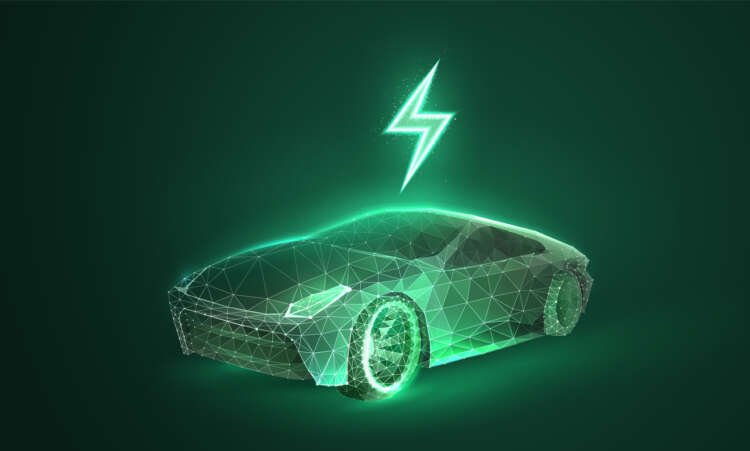Uber’s quest for sustainability: Partnering with auto manufacturers to design customized electric vehicles for ride-sharing and delivery services
Published by Jessica Weisman-Pitts
Posted on January 24, 2023
4 min readLast updated: February 2, 2026

Published by Jessica Weisman-Pitts
Posted on January 24, 2023
4 min readLast updated: February 2, 2026

In recent years, the ride-hailing industry has significantly shifted towards electric vehicles (EVs). Companies like Uber have recognized the environmental and economic benefits of using EVs for their services. They now work with auto manufacturers to design vehicles tailored to their
In recent years, the ride-hailing industry has significantly shifted towards electric vehicles (EVs). Companies like Uber have recognized the environmental and economic benefits of using EVs for their services. They now work with auto manufacturers to design vehicles tailored to their business ride-sharing and delivery needs.
In this article, we will explore the details of these partnerships, the benefits they bring, and the potential implications for the future of transportation.
Uber’s collaboration with General Motors (GM) is one of the most notable partnerships in this area. The two companies announced a strategic alliance in 2018, with GM investing $500 million in Uber’s autonomous vehicle program and Uber purchasing thousands of EVs from GM to use in its ride-hailing fleet. The partnership aims to develop a fleet of self-driving EVs that can be used for ride-hailing and delivery services.
Another major player in the ride-hailing industry, Lyft, has partnered with auto manufacturers to develop EVs for their service. In 2019, Lyft announced a partnership with Ford to develop a network of electric vehicles for their ride-hailing service. The partnership aims to have thousands of Ford EVs on the Lyft platform by 2022.
Using EVs for ride-hailing and delivery services brings several benefits. One of the most significant benefits is the reduction in emissions from transportation. With EVs, there are no emissions from the tailpipe, which helps to improve air quality and reduce greenhouse gas emissions. Additionally, EVs are cheaper to operate than traditional gasoline-powered vehicles, which can help to reduce costs for ride-hailing and delivery companies and ultimately lead to lower prices for customers.
Another benefit of using customized EVs for ride-hailing and delivery services is that they can be designed with specific features that make them more efficient and convenient. For example, EVs can be designed with larger trunks or cargo areas to accommodate deliveries or additional seating for multiple passengers.
Aside from these benefits, there were some challenges. One of the key challenges for ride-hailing companies like Uber is to reduce their environmental footprint and lower their operating costs. Electric vehicles (EVs) have the potential to do both, and that’s why Uber has been actively working to transition its fleet to EVs.
However, the company faces a significant challenge when it comes to finding EVs that are suitable for ride-sharing and delivery. Most of the existing EVs on the market were designed specifically for these types of services, which means they may need to be more efficient and convenient.
The partnerships between ride-hailing companies and auto manufacturers to design EVs for their services are a significant step toward the future of transportation. As more and more ride-hailing and delivery services switch to EVs, it will help to reduce emissions and improve air quality in cities. Additionally, as the costs of EVs continue to decrease, it will make them more accessible to consumers, leading to greater adoption of EVs in personal transportation.
Furthermore, the development of self-driving EVs for ride-hailing and delivery services has the potential to revolutionize the transportation industry. With the ability to operate 24/7, self-driving EVs could significantly increase the efficiency and capacity of ride-hailing and delivery services, leading to lower costs and faster customer service.
Additionally, the increased use of self-driving vehicles in ride-hailing services raises concerns about liability in accidents. Personal injury lawyers such as DolmanLaw.com may play an important role in determining who is responsible in these situations, as the lines between manufacturer and ride-hailing company liability may become blurred with the use of autonomous vehicles.
The partnership between ride-hailing companies and auto manufacturers to design EVs for their services is an important step toward the future of transportation. These partnerships bring benefits such as reduced emissions, lower operating costs, and more efficient and convenient vehicles for ride-hailing and delivery services. Furthermore, the development of self-driving EVs has the potential to revolutionize the transportation industry. As more and more companies adopt EVs, it will help to accelerate the transition to a cleaner and more sustainable transportation system.
The partnership between ride-hailing companies and auto manufacturers to design EVs for their services is an important step toward the future of transportation. These partnerships bring benefits such as reduced emissions, lower operating costs, and more efficient and convenient vehicles for ride-hailing and delivery services. Furthermore, the development of self-driving EVs has the potential to revolutionize the transportation industry. As more and more companies adopt EVs, it will help to accelerate the transition to a cleaner and more sustainable transportation system.
An electric vehicle (EV) is a type of vehicle that is powered by electricity instead of gasoline or diesel. EVs are known for being more environmentally friendly due to lower emissions.
Electric vehicles offer several benefits, including reduced emissions, lower operating costs, and potential savings for consumers. They also contribute to improved air quality.
Ride-sharing is a transportation service that allows passengers to connect with drivers through a mobile app, enabling shared rides in personal vehicles.
The transportation sector encompasses all modes of transport, including road, rail, air, and maritime, and is essential for the movement of people and goods.
Explore more articles in the Technology category











